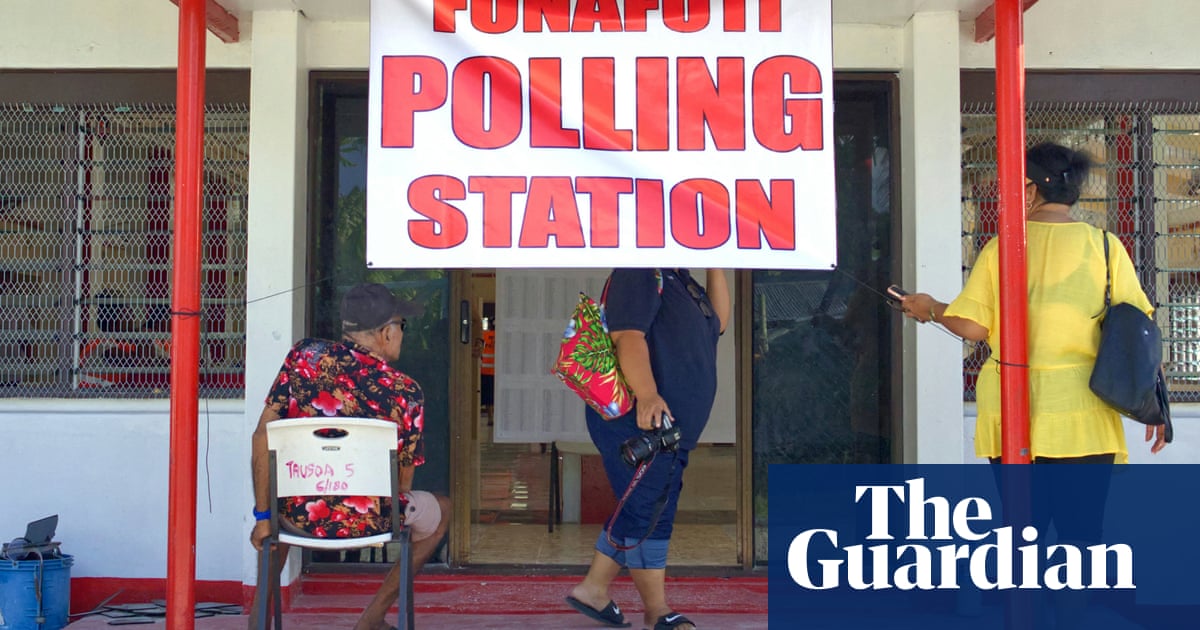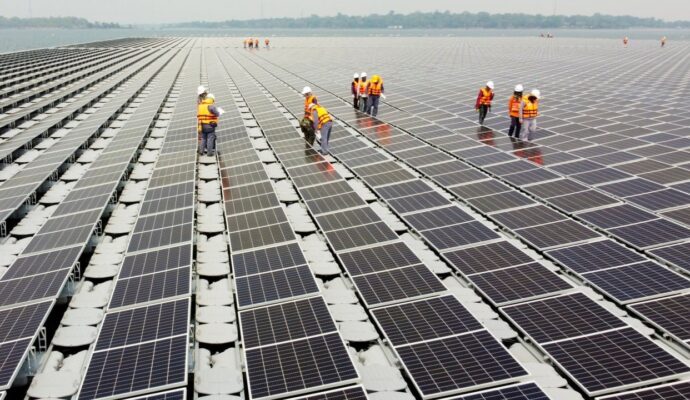
Voting has started in the tiny Pacific island nation of Tuvalu, in a national election that could reverberate from China to Australia, amid a tussle for influence in the region.
With just over 11,500 people spread across nine islands, Tuvalu is one of the smallest nations in the world, but the election for the 16-seat parliament was being closely watched. After the vote count, parliamentary negotiations will form a new government and elect the prime minister. Polls opened at 8am and were to close at 4pm.
Prime minister Kausea Natano is running again, but even reelection to parliament won’t guarantee him the top post.
Finance minister Seve Paeniu is challenging him, and opposition leader Enele Sopoaga is hoping to again be prime minister, after losing out to Natano after the 2019 election.
After votes are counted, government boats collect the new lawmakers from islands and bring them to the capital Funafuti, a journey that can take up to 27 hours. The prime minister is chosen by the newly elected lawmakers.
The elections come as China, the United States and others wrangle for influence in the strategically crucial region. Washington recently pledged to connect the country’s remote population by undersea cable to global telecommunications for the first time.
Tuvalu, a British colony until 1978, is one of only 12 countries that have official diplomatic relations with Taiwan, the self-governing democratic island that China claims as its own territory.
But China has been pushing those Taiwan allies to switch their alliance. Natano has so far rebuffed Beijing, but that could change after this election. Nauru, another small Pacific nation, recently switched its support from Taiwan to China.
Paeniu has said he wants to review Tuvalu’s relationships with both Taiwan and China.
Taiwan on Thursday said China was trying to influence the Tuvalu election and “seize our diplomatic allies”. China’s foreign ministry did not immediately respond to a request for comment.
Global warming is another big issue, as Tuvalu’s low-lying atolls routinely flood.
A proposed security treaty between Tuvalu and Australia could also hang in the balance. The treaty commits Australia to help Tuvalu in response to major natural disasters, health pandemics and military aggression. The treaty also gives Australia veto power over any security or defense-related agreement Tuvalu wants to make with any other country, including China.
Debate on the treaty has been divisive and it has yet to be ratified. Sopoaga has said he would reject it.


